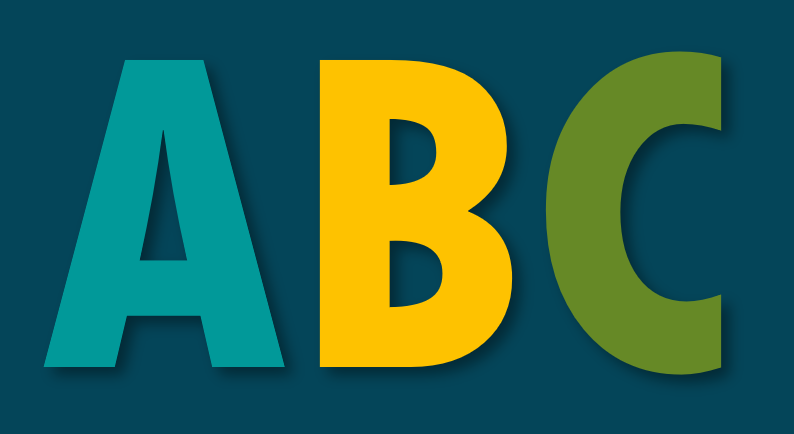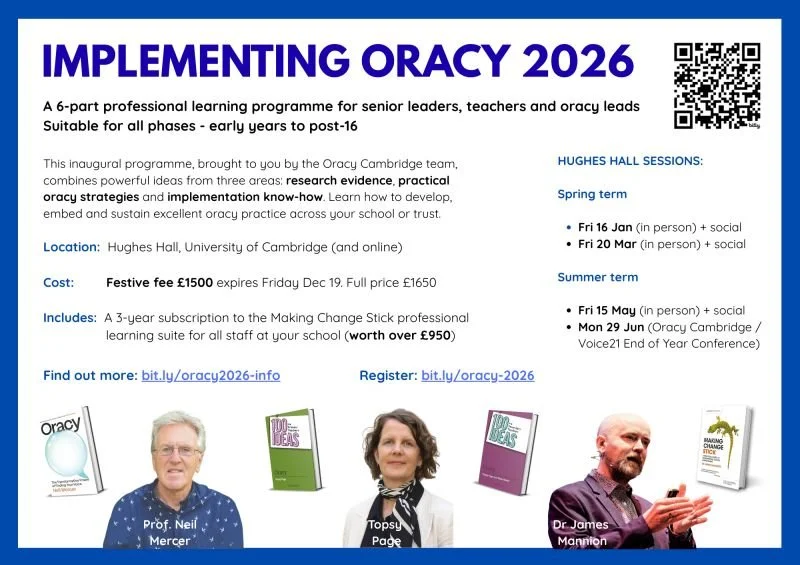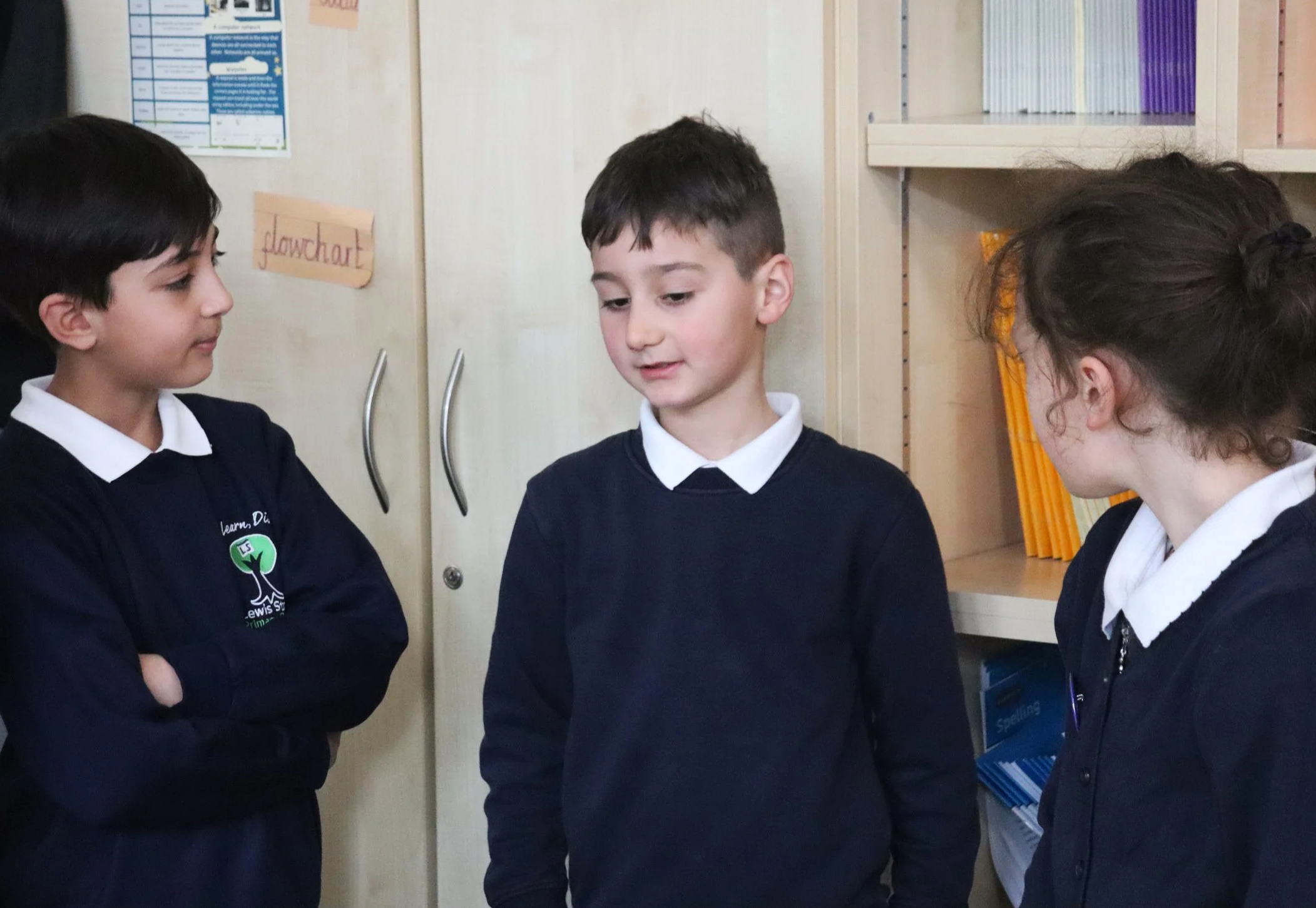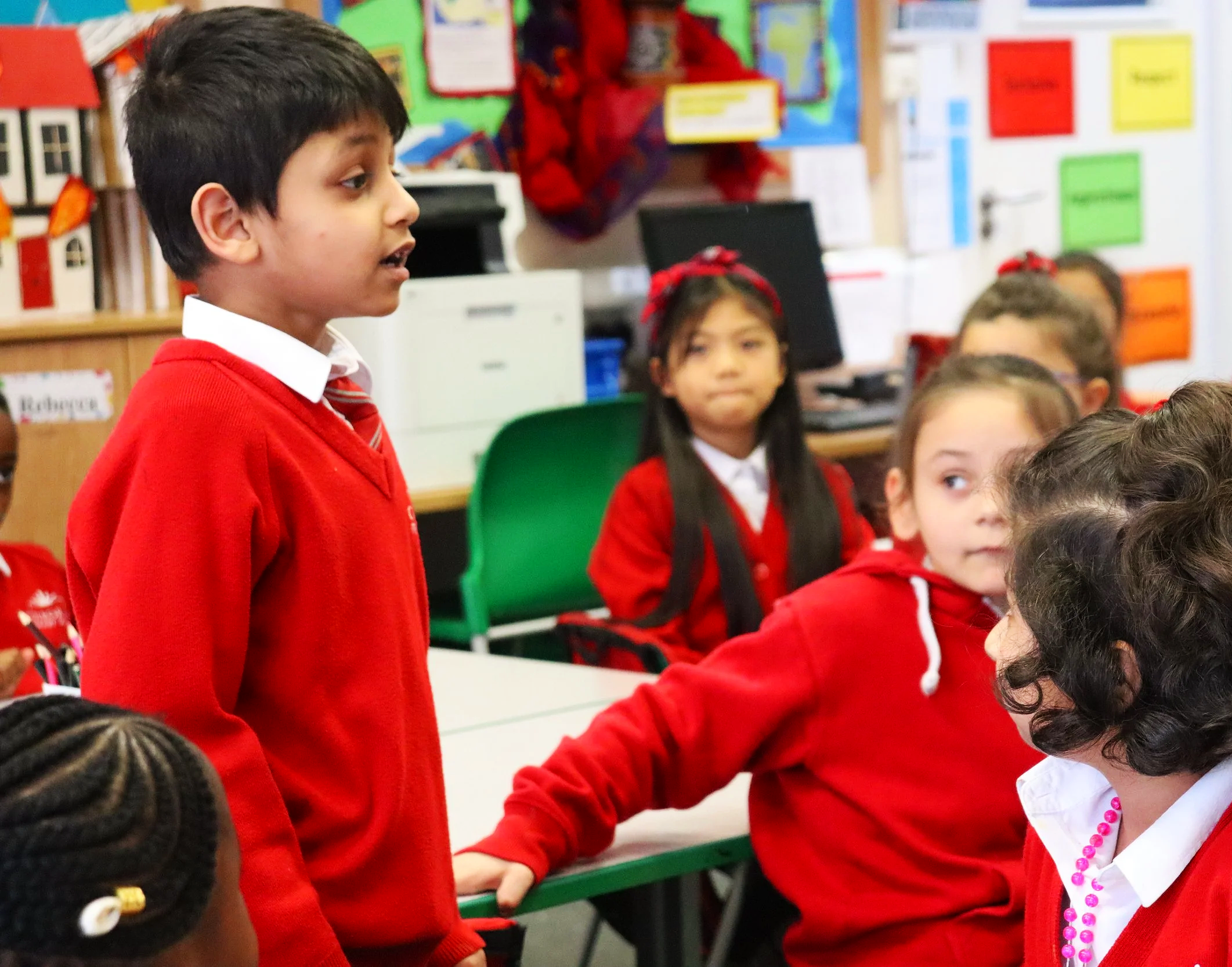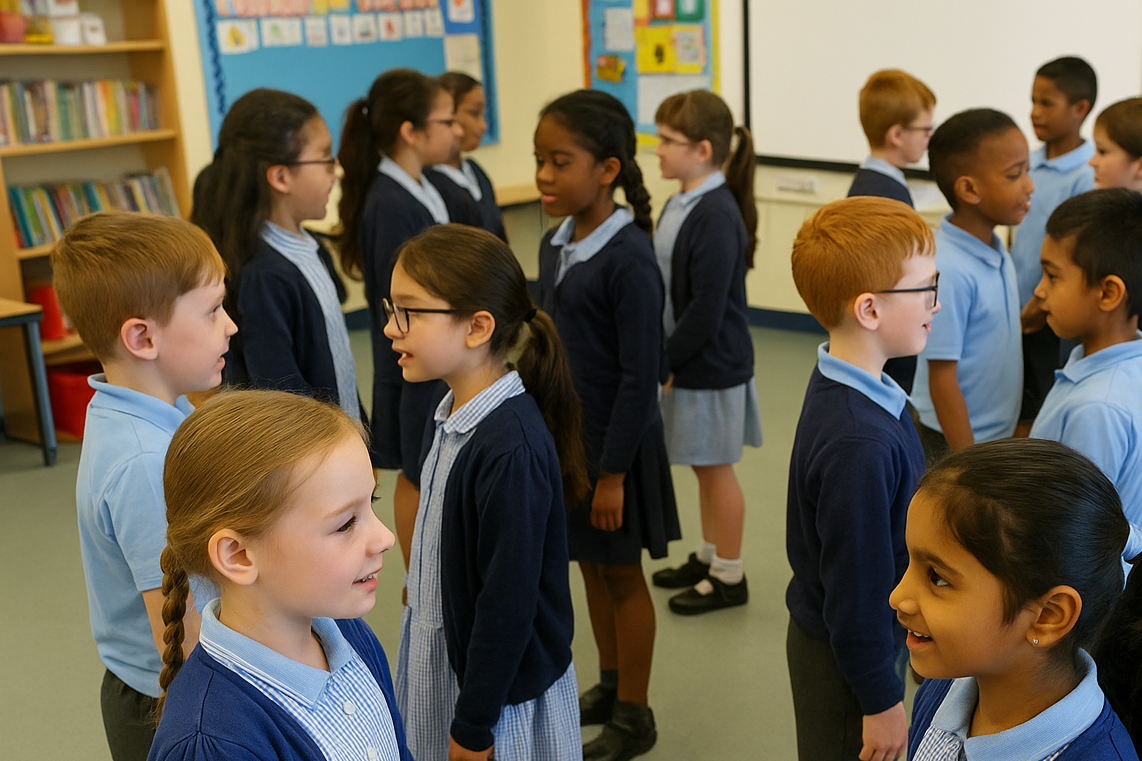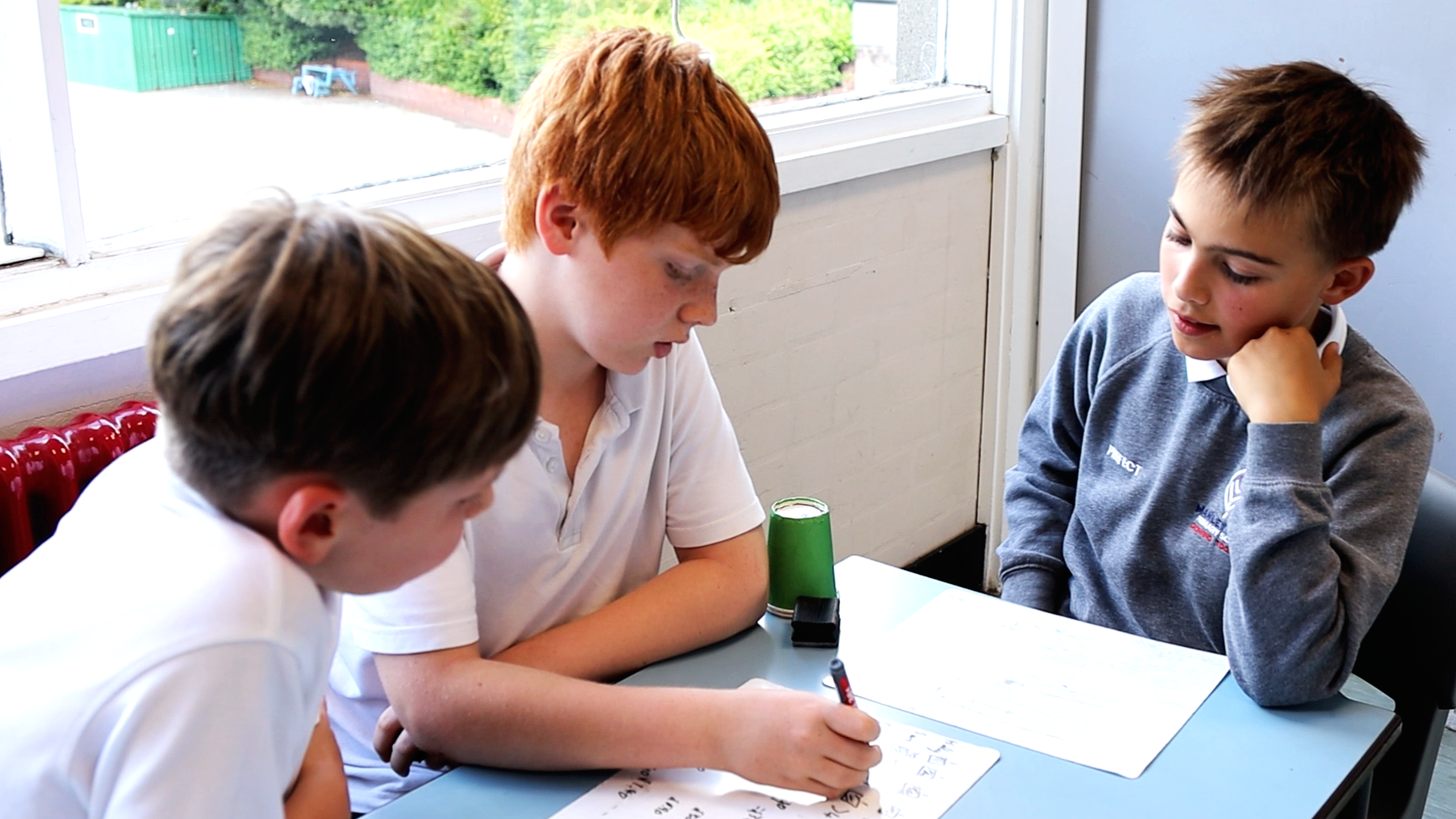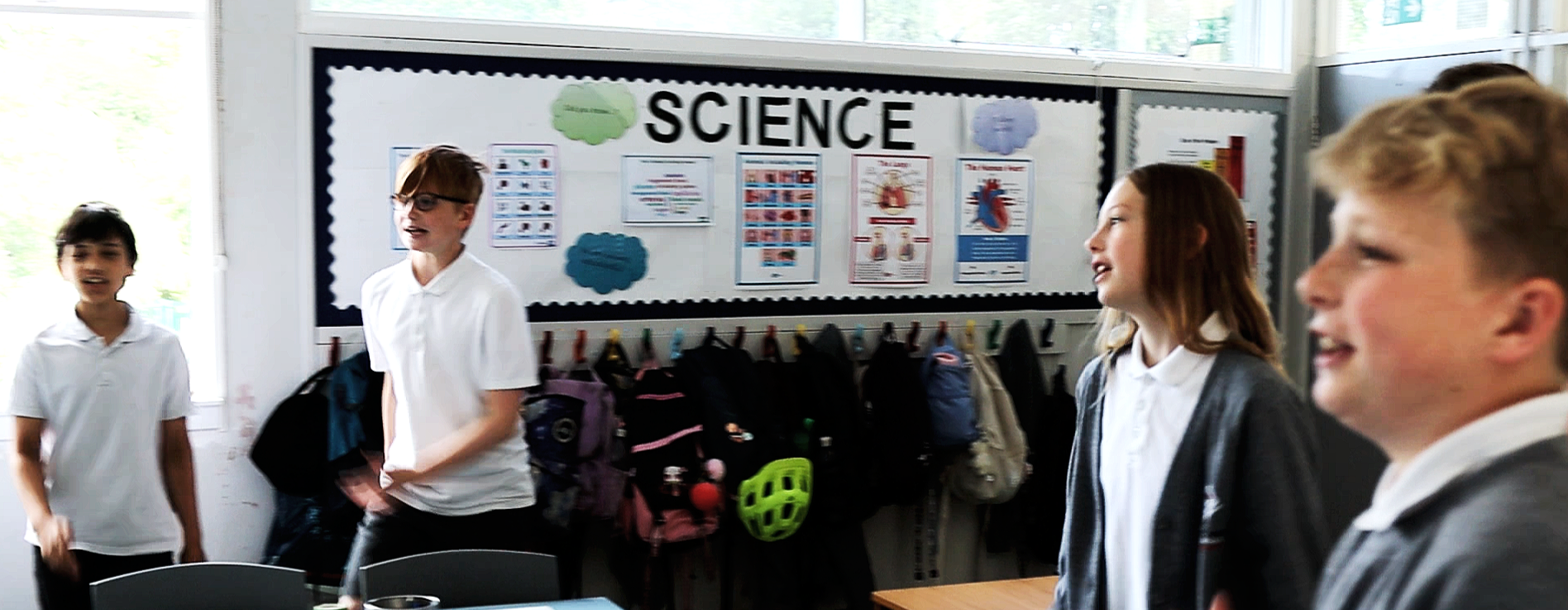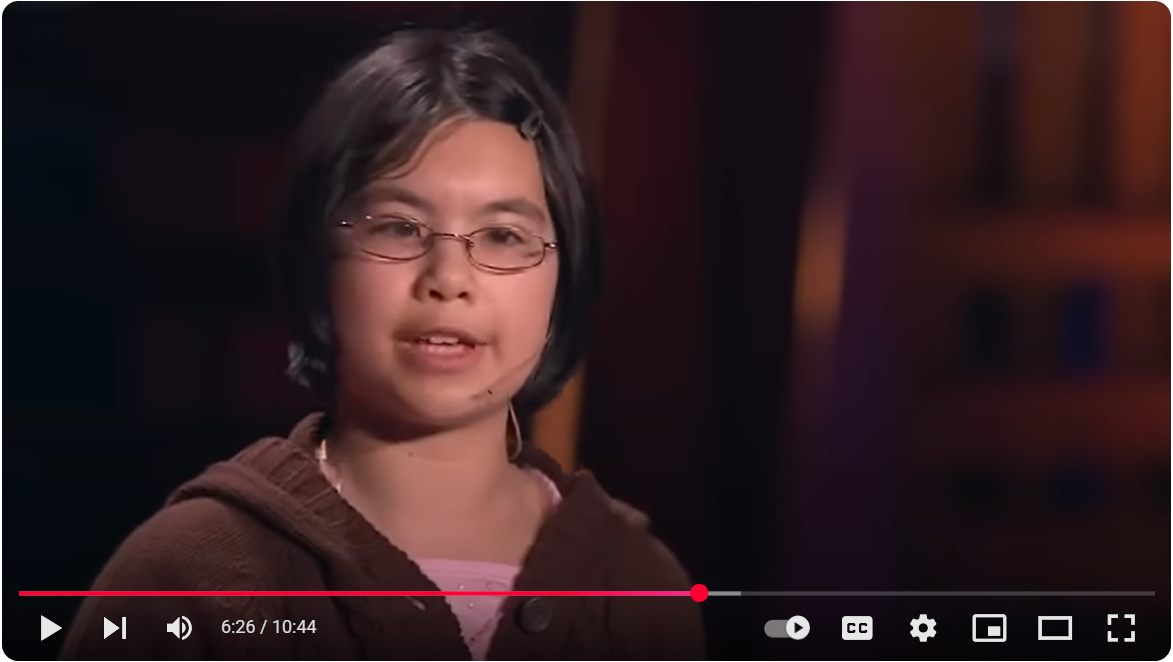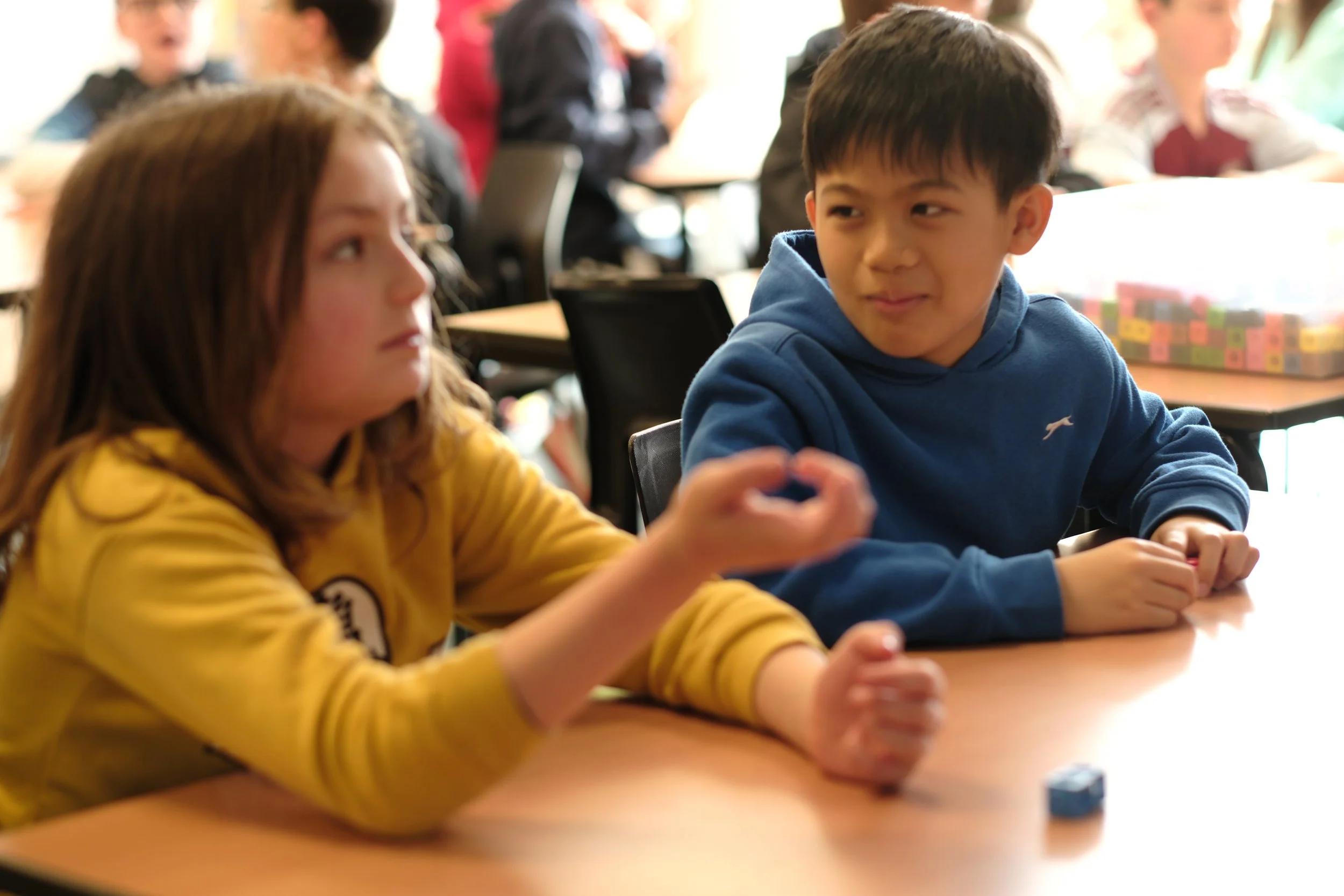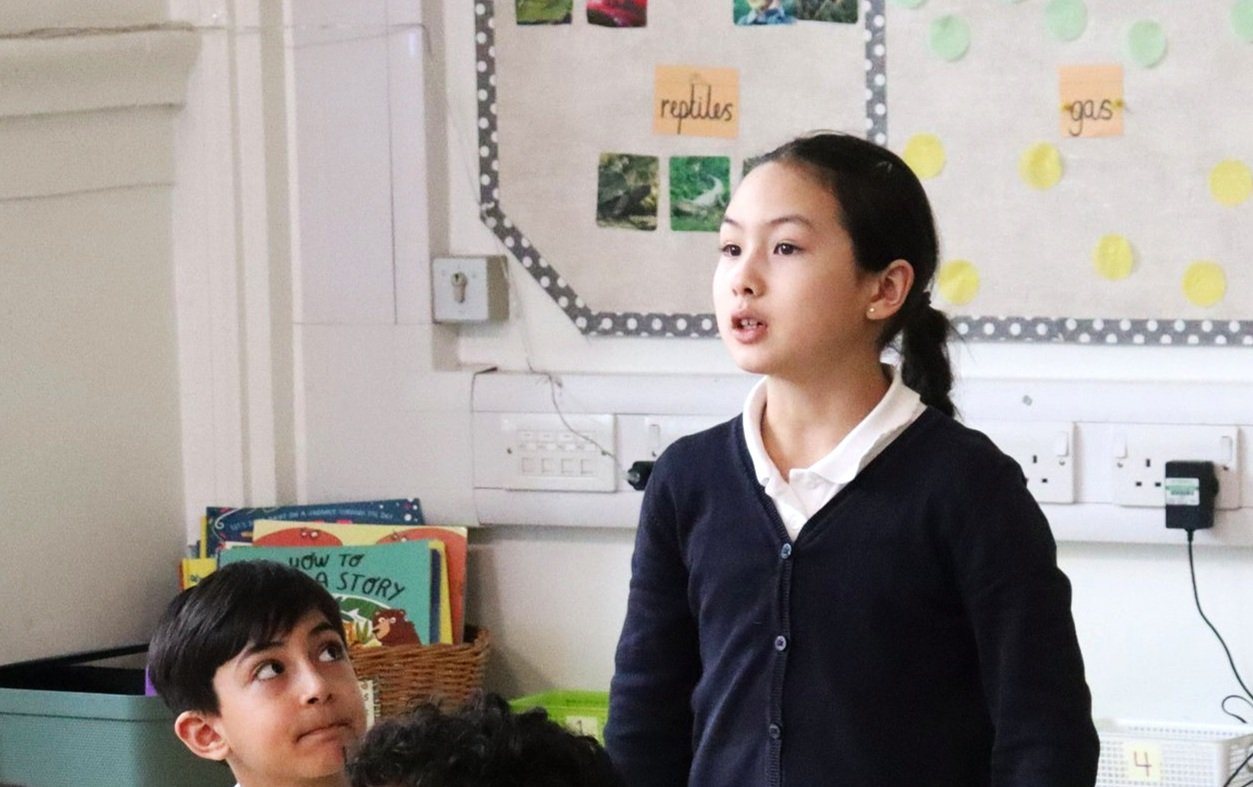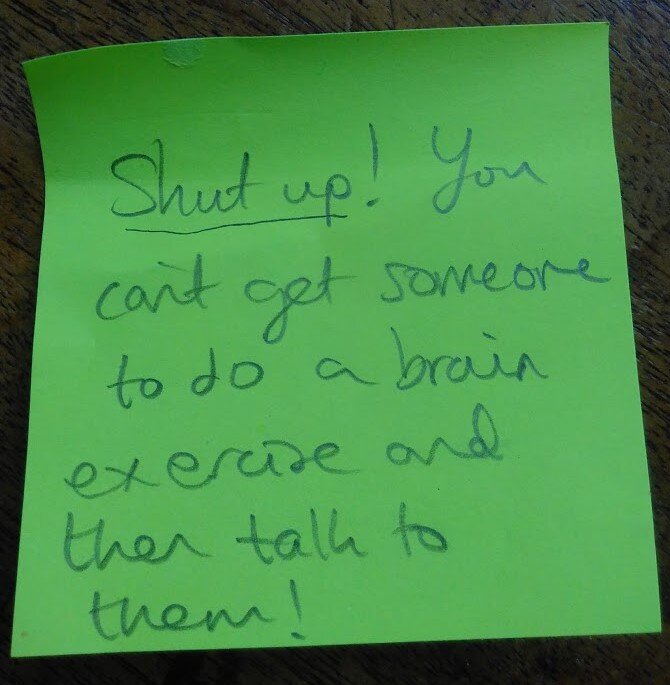
This week I’ve been delivering some online training for Teaching Assistants. It’s about talk, and how to use it skilfully to develop independent, successful learners.
In preparation, I asked my Mum to try a number challenge which would form part of the TA/learner role play activities. As she started the activities, I spoke to her, offering encouragement, advice and practical tips – as we often do in the classroom. She looked at me strangely.
I continued to offer support to see what the effect would be. In the end, infuriated and exasperated, she said to me, “Shut up! You can’t get someone to do a brain exercise and then talk to them!”
Yet so often we do.
Here are some reflections from the Teaching Assistants after they tried this activity:
Sometimes if there are too many suggestions your brain goes blank.
I am guilty of talking too much rather than backing off and letting the child try and achieve it.
This has made me realise we need to give children more quiet thinking time and not jump in just because there is a silence.
So… my course about talk is also about not talking sometimes.
Remember,
“Your silence provides the soil in which the child’s solutions can grow.”
Faber & Mazlish: How To Talk So Kids Will Listen and Listen So Kids Will Talk
Seasonal versions of some well-known oracy games
Learn how to embed excellent oracy practice – programme starts Fri 16 Jan
A great way to get students used to talking to different people
A structure which develops speaking and listening, and can be used across the curriculum
How one teacher raises accountability using a quick and simple technique
Collaboration is much more likely when pupils have to do a shared piece of work
Give students opportunities to say and apply new vocabulary
Recommended reading for teachers and everyone else too!
Would you rather spend most of your time indoors or outdoors? And more
Learners recall fiction, processes, explanations and more by listening and building on what others have said
How one teacher got everyone thinking, talking, listening and learning
Give pupils the skills and resilience to work with a diverse range of people
Talk prompts and sentence stems to help learners express different types of thinking
Help students to use the language of Maths

